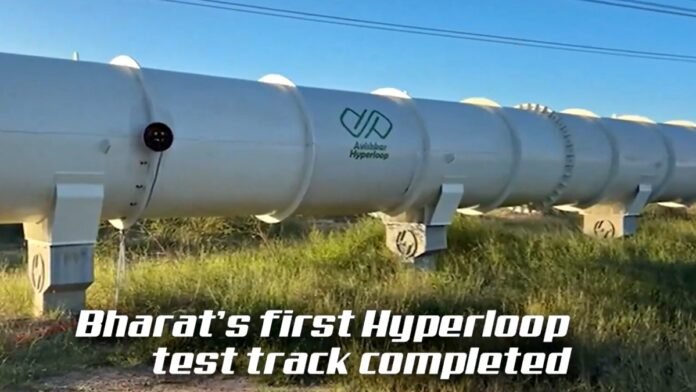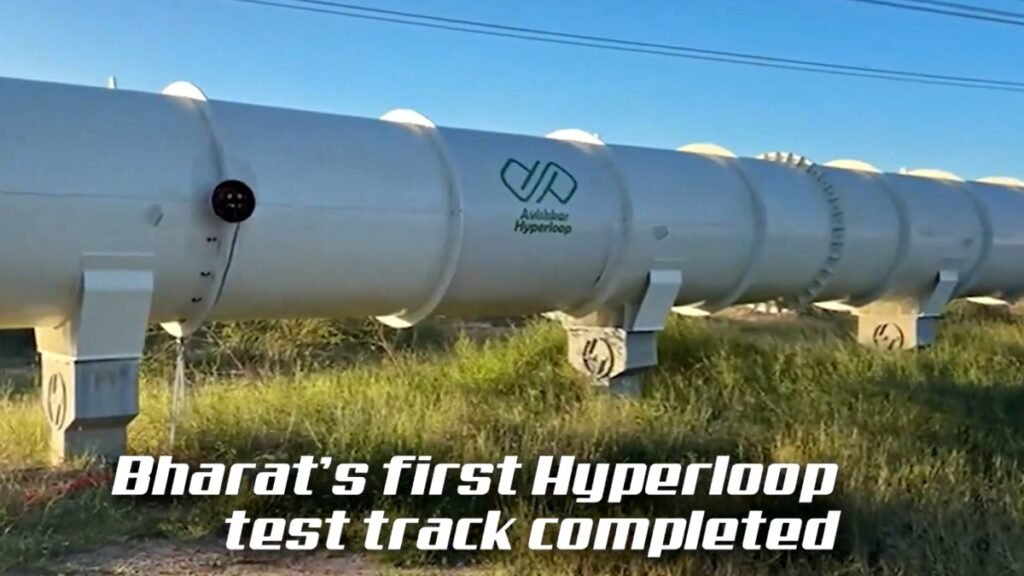
Chennai: India’s ambitious dream of revolutionizing high-speed transportation has taken a significant step forward with the successful completion of its first hyperloop test track at the Indian Institute of Technology (IIT) Madras. This breakthrough promises to redefine the future of travel in India, enabling airplane-like speeds for passengers while championing sustainable innovation.
Transforming Travel: Hyperloop’s Cutting-Edge Technology
Hyperloop technology uses magnetic levitation within low-pressure tubes to transport people and goods at extraordinary speeds while minimizing energy consumption. This innovative approach could potentially enable passengers to cover the 350-km journey between Chennai and Bengaluru in just 30 minutes.
The IIT Madras project, spearheaded by two dynamic teams Avishkar Hyperloop, a student-driven initiative, and TuTr Hyperloop, a deep-tech startup incubated within the institute – marks a giant leap in making hyperloop technology a reality in India.
A Collaborative Effort with Strategic Partnerships
Union Railways Minister Ashwini Vaishnaw shared visuals of the 410-mile hyperloop test track on social media platform X, lauding the collaboration between Indian Railways, IIT Madras, Avishkar Hyperloop, TuTr Hyperloop, and ArcelorMittal.
ArcelorMittal and its subsidiary, ArcelorMittal Nippon Steel India, played a pivotal role in supplying crucial materials and expertise for the test track, located on IIT Madras’ expansive 163-acre Discovery Campus in Thaiyur. The Ministry of Railways also partnered with IIT Madras, recognizing hyperloop’s potential to advance high-speed, affordable, and sustainable transportation in India.
Aiming for Excellence: IIT Madras’ Vision for Hyperloop
The hyperloop test track project, with an estimated cost of ₹8.34 crore, is expected to fuel further research and innovation in high-speed transit technologies. IIT Madras has proposed the establishment of a “Centre of Excellence for Hyperloop Technologies” under its Centre of Railway Research.
The Railways Ministry previously highlighted the role of the 70-member Avishkar Hyperloop team, formed in 2017, which has been leveraging scalable and cost-effective engineering solutions for hyperloop development.
India on the Global Hyperloop Map
India’s hyperloop ambitions gained global recognition when Avishkar Hyperloop emerged as the only Asian team in the top 10 at SpaceX’s Hyperloop Pod Competition in 2019. They further cemented their standing as one of the top three teams globally at the European Hyperloop Week 2023.
TuTr Hyperloop, established in 2022, now operates from the National Centre for Combustion Research and Development (NCCRD) at IIT Madras, focusing on the commercialization of hyperloop technologies.

A Greener Future with Hyperloop
The low-energy requirements of hyperloop technology align with India’s efforts to achieve carbon neutrality. This futuristic system not only promises to transform travel but also contributes to sustainable development goals.
What’s Next?
With the test track operational, India is well-positioned to lead the hyperloop revolution. As research and development progress, the country inches closer to realizing an advanced transportation network that combines speed, reliability, and sustainability.






































